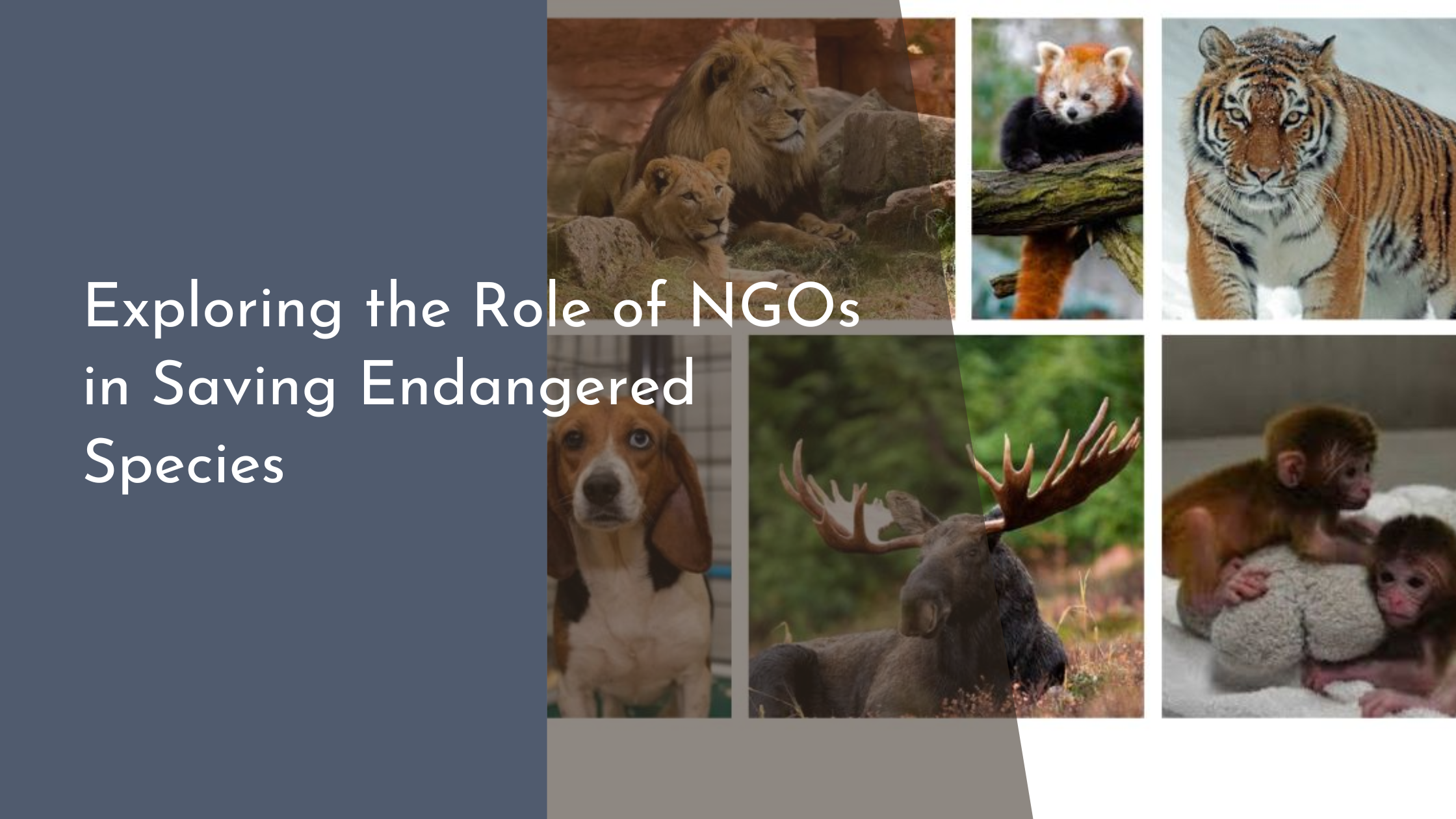Exploring the Role of NGOs in Saving Endangered Species
Endangered species around the world face a multitude of threats, from habitat destruction and climate change to poaching and pollution. These challenges require concerted efforts from various stakeholders to ensure the survival and thriving of such species. Among these stakeholders, Non-Governmental Organizations (NGOs) play a pivotal role in advocating for, protecting, and preserving the rich biodiversity our planet holds. This article explores the significance of endangered species, highlights the unique contributions of NGOs in conservation, showcases successful initiatives led by these organizations, and celebrates their relentless efforts in preserving biodiversity.
Understanding the Importance of Endangered Species
Endangered species are crucial to maintaining the balance of ecosystems. Each species plays a specific role within its ecosystem, contributing to the regulation of populations, the pollination of plants, and the decomposition of organic matter. The loss of an endangered species can trigger a cascade of negative effects, potentially leading to the decline or collapse of ecosystems that people and other wildlife depend on. Thus, the preservation of endangered species is not only about saving individual species but also about maintaining the health and functionality of ecosystems around the globe.
Moreover, endangered species hold intrinsic value and contribute to the cultural and natural heritage of our world. They often inspire awe and wonder, motivating people to engage with and preserve the natural world. Protecting endangered species ensures that future generations can experience the beauty and diversity of life on Earth. Furthermore, many species have direct and indirect economic benefits, from supporting tourism to contributing to biological research and medical advancements, emphasizing their importance beyond ecological considerations.
The Unique Contributions of NGOs in Conservation
NGOs bring a wealth of unique contributions to conservation efforts that government and private sectors alone may struggle to provide. One of the key strengths of NGOs lies in their ability to mobilize resources and create global networks to address conservation challenges. They operate on various scales, from local community projects to international campaigns, allowing them to be nimble and adaptive to different ecological and socio-economic contexts. NGOs often work closely with local communities, involving them in conservation strategies and empowering them to become stewards of their own natural resources.
Additionally, NGOs often serve as a bridge between scientific research and practical conservation on the ground. They leverage cutting-edge research to inform and implement effective conservation strategies, ensuring that actions taken are based on the best available science. Their focus on education and advocacy raises awareness about the plight of endangered species, influencing public opinion and policy changes. Through campaigns, educational programs, and partnerships, NGOs play a critical role in fostering a global culture of conservation.
Successful NGO-led Initiatives for Wildlife Protection
One of the most celebrated NGO-led initiatives is the World Wildlife Fund’s (WWF) efforts in preserving the Giant Panda, once on the brink of extinction. Through habitat restoration, anti-poaching measures, and working with local communities in China, the WWF played an instrumental role in increasing the panda population, which was eventually reclassified from “Endangered” to “Vulnerable.” This initiative underscores the importance of targeted conservation efforts and the power of collaboration between NGOs and governments.
Another notable example is the work of the Wildlife Conservation Society (WCS) in saving the snow leopards in Central Asia. By establishing protected areas and working with local herders to reduce human-wildlife conflict, WCS has improved habitat security for these elusive creatures. Their efforts have not only contributed to the stabilization of snow leopard populations but also promoted sustainable practices that benefit local communities economically and culturally. These initiatives demonstrate the potential of NGOs to create lasting impact on endangered species and their habitats.
Conclusion: Celebrating NGO Efforts in Biodiversity Preservation
NGOs have proven to be essential players in the fight to save endangered species and preserve the planet’s biodiversity. Their ability to mobilize resources, foster global networks, and engage local communities allows them to implement effective and sustainable conservation strategies. The successes of various NGO-led initiatives offer hope and inspiration, showcasing how dedicated efforts can lead to tangible results for endangered species worldwide.
The tireless work of NGOs in conserving endangered species and preserving biodiversity is a testament to the power of collective action and commitment to a cause greater than oneself. As we celebrate their accomplishments, it is essential to support and collaborate with these organizations to ensure that future generations inherit a world rich in natural beauty and ecological diversity. By working together, we can overcome the challenges facing endangered species and foster a future where wildlife can thrive alongside human development.

